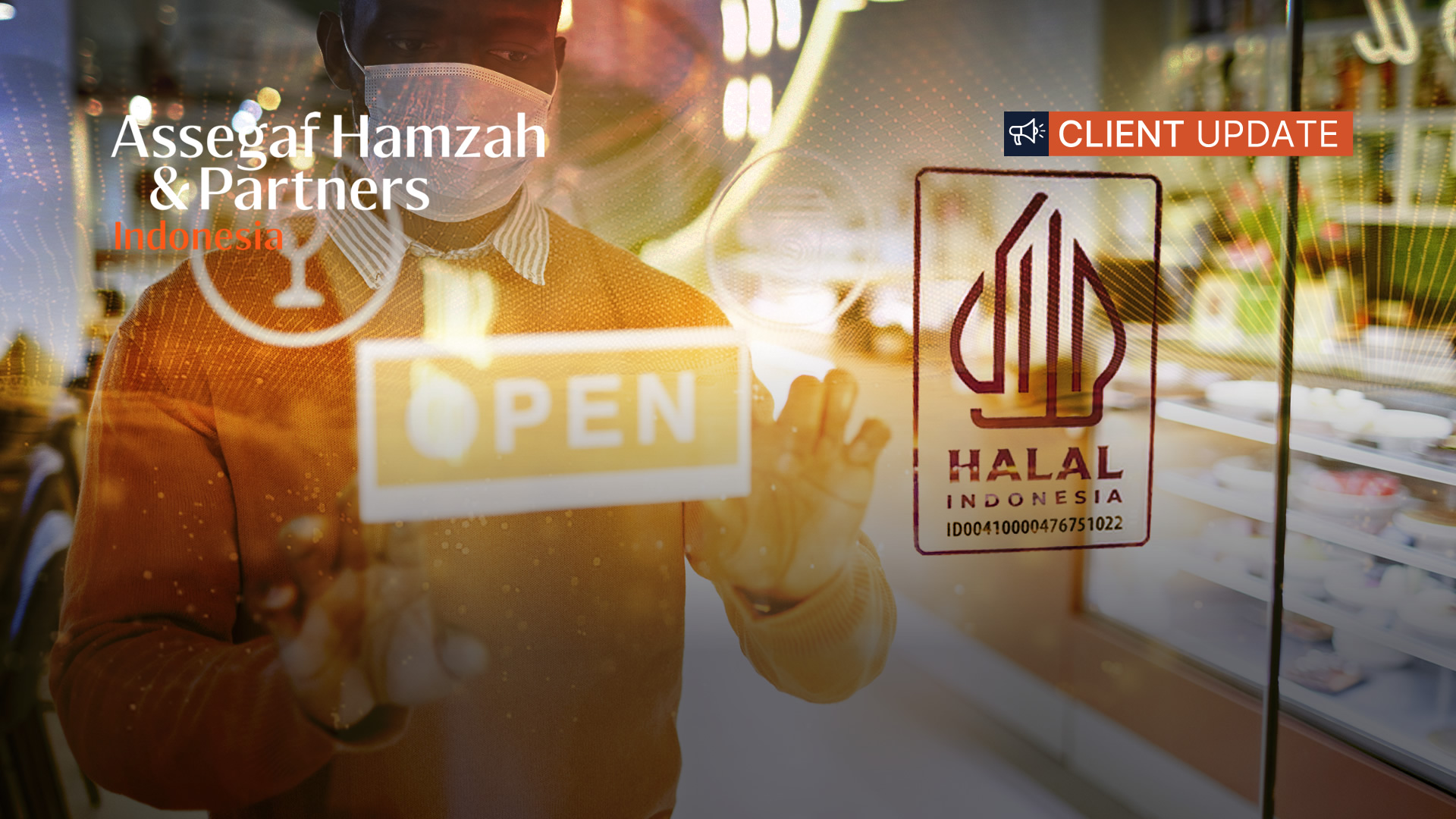Indonesia’s Halal Certification Deadlineis Here: Is Your F&B Business Compliant?

As discussed in our previous update on this topic (click here to read), Indonesia's mandatory halal regime for various goods and services is being implemented in stages, beginning today, 17 October 2024. This is in accordance with Law No. 33 of 2014 on Halal Product Assurance, as amended by Law No. 6 of 2023,[1] and Government Regulation No. 39 of 2021 on the Implementation of the Halal Product Assurance.
The first stage of this implementation focuses on the food and beverage ("F&B") sector. Effective today, all F&B products sold and distributed in Indonesia, except those that originate from materials prohibited under Islam (haram), must be halal-certified by the Halal Product Assurance Administering Agency (Badan Penyelenggara Jaminan Produk Halal or "BPJPH"). This includes raw materials, food additives, and auxiliary materials used in F&B production, as well as slaughtered products and related services. In this respect, products derived from or made with non-halal ingredients must clearly display a non-halal label on their packaging. This label can be in the form of a picture, sign, or written notice.
It is crucial to note that this mandatory halal certification also applies to products manufactured outside of Indonesia but sold within the country. For imported products, halal certificates issued by foreign halal agencies will be recognised in Indonesia only if those agencies have entered into a mutual recognition agreement with the BPJPH. This means that products with recognised halal certifications only need to be registered with the BPJPH, without undergoing the certification process in Indonesia.
However, if a foreign halal agency is not yet recognised by the BPJPH, products must undergo the Indonesian halal certification process, even if they have already been halal-certified abroad.
Failing to comply with these halal certification requirements can lead to administrative sanctions, ranging from written warnings, fines, to product recalls.
Key Takeaways
With the mandatory halal certification now in effect, businesses in the F&B sector must ensure immediate compliance. From the government's side, the BPJPH has been ramping up its enforcement efforts by appointing Halal Product Assurance Supervisory Personnel (SDM Pengawas Jaminan Produk Halal) across various regions in Indonesia. These personnel have undergone mandatory training as part of their appointment and will be responsible for overseeing the implementation of halal certification in the first phase.
While the range of potential sanctions for non-compliance has been outlined, it remains to be seen how severely these sanctions will be applied in practice. However, the BPJPH's recent actions suggest a proactive approach to enforcement, underscoring the importance of compliance. Businesses should proactively verify their products' compliance with the new halal certification requirements. This includes reviewing ingredients, production processes, and labelling to ensure alignment with halal standards.
[1] On the Stipulation of Government Regulation in Lieu of Law No. 2 of 2022 on Job Creation to Become Law.
Have any Question please contact
Tsurayya Nurrahma also contributed to this alert.

